Turkish prosecutors hand 11 people life sentences over ski resort blaze
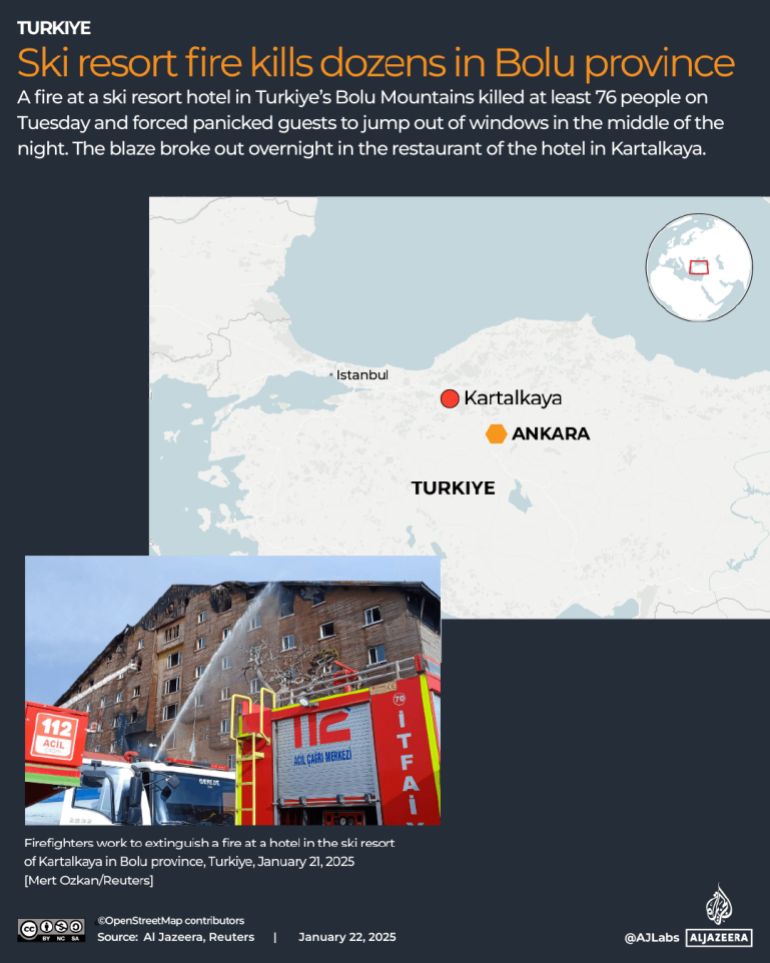
Thirty-four children were among 78 people killed in the deadly blaze, which occurred during the school holidays. By News Agencies Published On 1 Nov 20251 Nov 2025 Click here to share on social media share2 Share A Turkish court has sentenced 11 people to life in prison over a fire that killed 78 people at a hotel in a ski resort in northwest Turkiye’s Bolu mountains in January. Among those sentenced on Friday were Halit Ergul – the owner of the Grand Kartal Hotel, which sits in the Kartalkaya ski resort about 295km (183 miles) east of Istanbul – according to state-run broadcaster TRT Haber. Recommended Stories list of 3 itemsend of list The court also sentenced Ergul’s wife, Emine Ergul, and their daughters, Elif Aras and Ceyda Hacibekiroglu – all of whom were part of the hotel’s management team. The deadly blaze broke out overnight in the restaurant of the Grand Kartal on January 21, quickly engulfing the 12-storey hotel, where 238 guests were staying. Thirty-four children were among 78 people killed in the fire, which occurred during the school holidays when many families from Ankara and Istanbul head to the Bolu mountains to ski. Another 137 people suffered injuries during the incident, as panicked hotel guests were forced to jump from windows in the middle of the night. Also sentenced on Friday were the hotel’s general manager, Emir Aras, as well as the deputy mayor of Bolu, Sedat Gulener, and the director of another hotel, Ahmet Demir, both of whom were reportedly on the board of directors of the company that owned the Grand Kartal. There are a total of 32 defendants in the trial, 20 of whom are in pre-trial detention, according to TRT. It’s unclear when the remaining defendants will appear in court. In total, the convicted were handed 34 aggravated life sentences for the 34 children killed in the disaster. Those in the courtroom greeted the announcement with applause. Advertisement The fire sparked nationwide anger in Turkiye, with questions raised over safety measures in place at the hotel after survivors said no fire alarms went off during the incident, and they had to navigate smoke-filled corridors in complete darkness. Under pressure to act, Turkish authorities quickly arrested nine people in connection with the blaze, while the government appointed six prosecutors to lead an investigation. Speaking to reporters outside the still-smoking hotel, Interior Minister Ali Yerlikaya pledged that those “responsible for causing this pain will not escape justice”. Turkish President Recep Tayyip Erdogan announced a day of national mourning, as he served as a pallbearer at a funeral ceremony for the victims the following day. Turkish President Tayyip Erdogan attends a funeral ceremony for the victims of the deadly hotel fire at Kartalkaya ski resort in Bolu, Turkiye, on January 22, 2025 [Adem Altan/Pool via Reuters] Adblock test (Why?)
G7 slams Russian attacks on energy as Ukraine decries ‘nuclear terrorism’
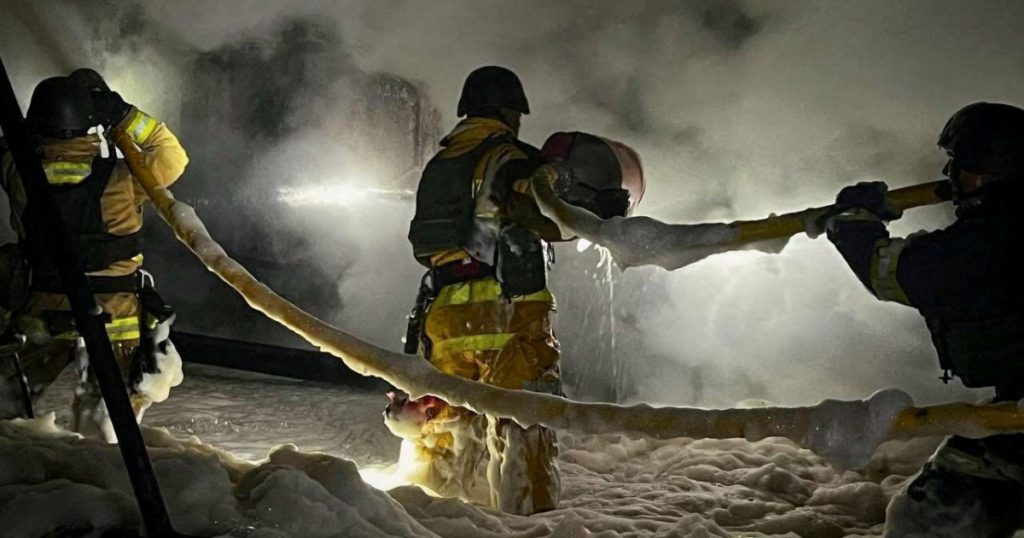
The group said Russian attacks are inflicting ‘devastating social, environmental, and economic consequences’ on Ukraine. The energy ministers of the Group of Seven nations (G7) have issued a joint statement condemning Russia’s attacks on Ukraine’s energy system, after authorities in Kyiv described Moscow’s most recent barrage as akin to “nuclear terrorism”. In a Friday statement, the G7 energy ministers – representing Canada, France, Germany, Italy, Japan, the United Kingdom and the United States – said Russia’s attacks “continue to inflict devastating social, environmental, and economic consequences on the Ukrainian people”. Recommended Stories list of 3 itemsend of list “Russia’s recent attacks on Ukraine’s natural gas infrastructure have created risks to communities and human lives, weakening civilian infrastructure and the energy security of the Ukrainian people,” it said. The G7 statement said it continues to support the reconstruction of Ukraine’s energy sector “through direct financial assistance, credit facilities, risk insurance, policy and resource alignment, as well as setting conditions for long-term private sector investment”. Over recent weeks, Ukraine has accused Russia of repeatedly attacking critical civilian energy infrastructure ahead of the bitterly cold winter months in order to inflict suffering on its population. Most recently, Ukrainian Prime Minister Yulia Svyrydenko said Moscow’s “goal is to plunge Ukraine into darkness”, after a wave of Russian attacks hit energy facilities in central, western, and southeastern regions of the country on Thursday, killing seven people. “Russia continues its systematic energy terror – striking at the lives, dignity, and warmth of Ukrainians on the eve of winter,” Svyrydenko said. Advertisement “To stop the terror, we need more air defence systems, tougher sanctions, and maximum pressure on the aggressor,” she added. On Friday, Ukraine’s Ministry of Foreign Affairs denounced what it said were “targeted strikes” by Russian forces on substations critical to supplying external power for Ukraine’s nuclear power stations. “Deliberate strikes on civilian energy facilities that directly affect the safe operation of nuclear installations bear the hallmarks of nuclear terrorism and constitute a grave violation of international humanitarian law,” it said. Kyiv announced nationwide limits on electricity supplies to retail and industrial consumers following Thursday’s attacks, while water supplies and heating were also disrupted in some regions. The United Nations’ International Atomic Energy Agency (IAEA) also said three Ukrainian nuclear power plants were forced to reduce output due to the assault. “The dangers to nuclear safety continue to be very real and ever-present,” IAEA Director General Rafael Grossi warned. “I once again call for maximum military restraint in the vicinity of nuclear facilities,” he added. Moscow denies it targets civilians. It claims its strikes are simply a response to Ukraine’s attacks on Russian civilian infrastructure. Moscow and Kyiv regularly accuse each other of targeting one another’s energy sites, as well as engaging in military activity that compromises safety at Ukraine’s four working nuclear plants. The Zaporizhzhia nuclear power plant, seized by Russian forces in the early weeks of Moscow’s February 2022 invasion of Ukraine, has become a prime concern for the IAEA as fighting rages nearby. On October 23, the Russian-installed administration of Zaporizhia said it had repaired a damaged high-voltage line and restored external power to the plant. It had been without external electricity for 30 days and relying on backup diesel generators since September 23, when its last remaining external power line was severed in attacks that each side blamed on the other. Europe’s largest nuclear plant, with six reactors, Zaporizhzhia, currently produces no electricity, but needs external power to cool the nuclear fuel and avoid any catastrophic nuclear incidents. Adblock test (Why?)
Trump says not planning US strikes on Venezuela
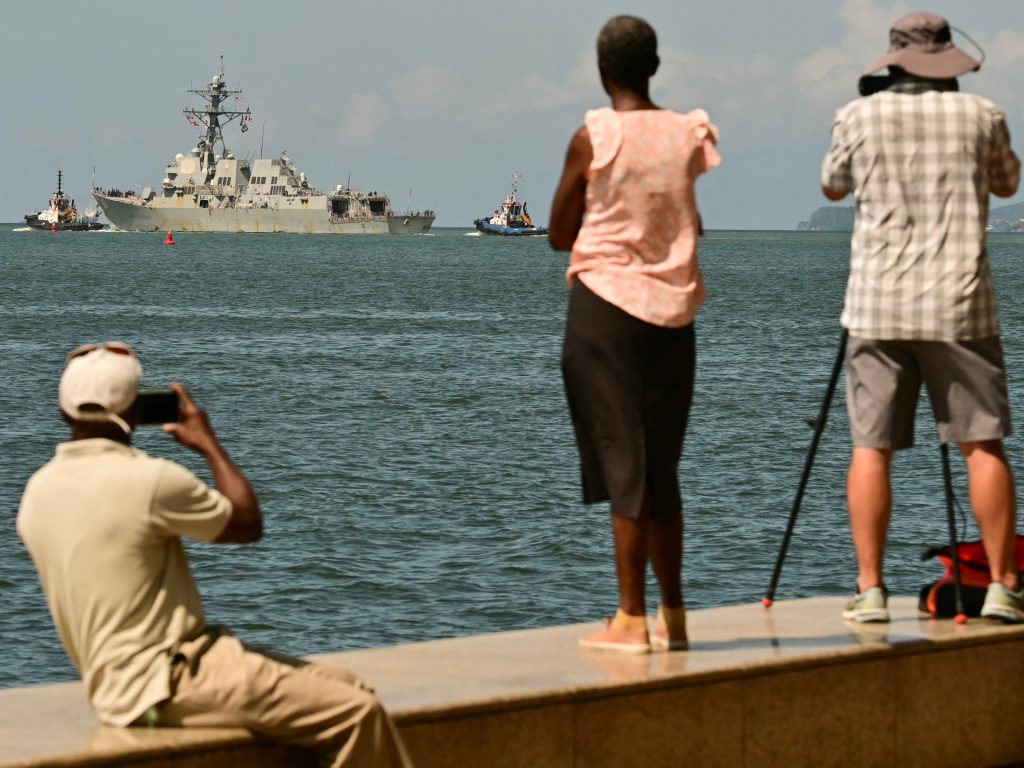
United States President Donald Trump has said he is not considering strikes within Venezuela, appearing to contradict his own comments earlier this month, amid a major US military build-up in the region. The US has now deployed fighter jets, warships and thousands of troops to the Caribbean, with the world’s largest warship, aircraft carrier USS Gerald R Ford, on its way towards the Venezuelan coast. Recommended Stories list of 4 itemsend of list When asked by reporters on board Air Force One on Friday if media reports that he was considering strikes within Venezuela were true, Trump answered: “No.” US Secretary of State Marco Rubio delivered the same message as he responded to an article in the Miami Herald that said Washington’s forces were poised to hit Venezuela. “Your ‘sources’ claiming to have ‘knowledge of the situation’ tricked you into writing a fake story,” Rubio said in a post on X. Trump’s brief response on Friday appeared to contrast with remarks he has made about Venezuela on at least two occasions earlier this month. The US president said last week he would not “necessarily ask for a declaration of war” to proceed, saying, “I think we’re just going to kill people that are bringing drugs into our country. OK? We’re going to kill them.” “Now they [drugs] are coming in by land … you know, the land is going to be next,” he added. The US military has launched a string of strikes on vessels in the Caribbean and eastern Pacific since early September, killing at least 62 people and destroying 14 boats and a semi-submersible. Advertisement The Trump administration has said the attacks are targeting alleged drug smuggling, but has yet to present any evidence to the public to substantiate its claims. United Nations High Commissioner for Human Rights Volker Turk decried the attacks “and their mounting human cost” as “unacceptable” in a statement on Friday. “The US must halt such attacks and take all measures necessary to prevent the extrajudicial killing of people aboard these boats, whatever the criminal conduct alleged against them,” Turk said. Meanwhile, a new YouGov poll published on Friday found that fewer Americans approve of the US Navy’s presence around Venezuela than in September. In the most recent poll, just 30 percent of people surveyed said that they strongly or somewhat approved of the naval deployment, while 37 percent disapprove. By contrast, slightly more people, 36 percent, approved in September, while 38 percent disapproved. Venezuelan President Nicolas Maduro has responded to the US escalation by accusing the US government of “fabricating a new eternal war” against him. He has also denied the US claims about drugs. “Venezuela is a country that does not produce cocaine leaves,” he said last week, while experts say that most drugs are smuggled into the US via the Mexican land border – by US citizens. Trinidad and Tobago puts military on alert Despite the comments by Trump and Rubio, Trinidad and Tobago, which neighbours Venezuela and has been hosting a US warship, put its military on alert on Friday and recalled all personnel to their bases. Trinidadian forces have been placed on “STATE ONE ALERT LEVEL,” a message sent by the army said, according to the AFP news agency. Police said that “all leave is restricted” until further notice. The Trinidad and Tobago Guardian newspaper also confirmed that soldiers had been ordered to report to duty. On Tuesday, Venezuela suspended a major gas deal with neighbouring Trinidad and Tobago, citing the island nation’s reception of the USS Gravely US warship. Trinidad and Tobago has said the warship was there for regular, planned joint military exercises with the United States. US senators seeking answers on ‘anti-drug’ strategy Leaders of the US Senate Armed Services Committee from both the Republican and Democratic parties have said that their requests for information on the legal basis of the US attacks on vessels in the Caribbean have gone unanswered. In a rare bipartisan action, Republican Senator Roger Wicker and Democrat Jack Reed released a statement on Friday, alongside two letters requesting more information on the strikes, addressed to US Defense Secretary Pete Hegseth, dated September 23 and October 6. Advertisement Wicker, who is also the chair of the committee, and Reed, who is the top Democrat, said that to date, the requested documents have not been provided. Adblock test (Why?)
Russia-Ukraine war: List of key events, day 1,345
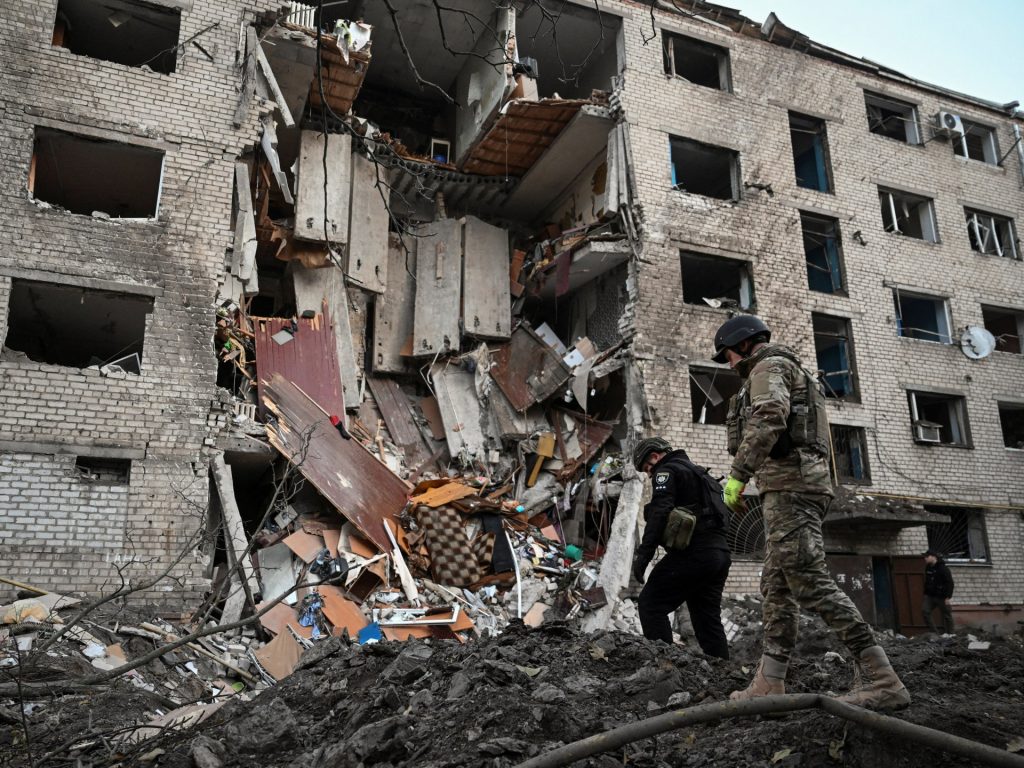
Here are the key events from day 1,345 of Russia’s war on Ukraine. By News Agencies Published On 31 Oct 202531 Oct 2025 Click here to share on social media share2 Share Here is how things stand on Friday, October 31, 2025: Fighting Russia’s Ministry of Defence said its forces took control of the villages of Krasnohirske in Ukraine’s Zaporizhia region and Sadove in the Kharkiv region, Russian state news agencies reported. Russia launched a barrage of drones and missiles at Ukraine’s energy infrastructure and other targets on Thursday and in the early hours of Friday, forcing nationwide power restrictions and killing seven people. The victims include one person in a village south of Ukraine’s southeastern industrial city of Zaporizhzhia who was killed in a Russian drone strike. Regional officials said two men were also killed in Russian attacks on Zaporizhzhia itself, while a seven-year-old girl from the central Vinnytsia region died in hospital from injuries sustained in the attacks. Prosecutors in the Donetsk region said Russian attacks on dwellings in the city of Kramatorsk killed one person and injured three. In Sumy, a city near the northern border with Russia, the regional governor wrote on Telegram that 10 Russian drones attacked the city early on Friday. He said two people were injured when two apartment buildings were hit, and pictures posted online showed several apartments ablaze. Ukrainian President Volodymyr Zelenskyy said in his nightly video address that a bomb attack on a thermal power plant in Sloviansk in eastern Donetsk region killed two people and injured a number of others. Zelenskyy added that Russia launched more than 650 drones and 50 missiles in the attacks. Most of the drones were neutralised and two-thirds of the missiles were downed, he said. Ukrainian Prime Minister Yulia Svyrydenko accused Moscow of targeting Ukrainian people and power supplies as the cold winter months approach. “Its goal is to plunge Ukraine into darkness. Ours is to preserve the light,” Svyrydenko said. Europe Advertisement Polish MiG-29 fighter aircraft intercepted a Russian reconnaissance plane over the Baltic Sea in the second such incident this week, Polish Defence Minister Wladyslaw Kosiniak-Kamysz said. Poland said it would not reopen more border crossings with close Russian ally Belarus until at least mid-November in a move intended to show solidarity with fellow NATO member Lithuania amid heightened security concerns. Poland closed its border with Belarus six weeks ago because of what Warsaw said were “very aggressive” Russia-led military exercises on Belarusian territory, days after 21 Russian drones entered Polish airspace. Lithuania shut its land border with Belarus this week in response to airspace disruptions caused by smuggling balloons and said it would remain closed until the end of November. A German of Russian ethnic background was convicted of spying and planning arson attacks on military installations and railways in Germany on behalf of Russia and sentenced to six years in prison. A court in the Bavarian state capital, Munich, gave two accomplices suspended sentences of 12 and six months. Peace talks Hungarian Prime Minister Viktor Orban will meet United States President Donald Trump on November 7 in Washington, where he aims to discuss a path to a US-Russia meeting in his country and seek exemption from US energy sanctions, Orban’s chief of staff said. Russian senator Vladimir Dzhabarov said Trump should negotiate with Russia, rather than imposing sanctions on it, according to state news agency RIA Novosti. Nuclear weapons The Kremlin said Russia’s test of a nuclear-powered missile and a nuclear-powered torpedo were not nuclear weapons tests, after President Trump suggested the United States would resume nuclear weapons testing to the same levels as its rivals. Kremlin spokesman Dmitry Peskov said Russian President Vladimir Putin cautioned that if any country tested a nuclear weapon, then Russia would too. Andrei Kartapolov, a senior Russian lawmaker, said nuclear testing by the US will lead to a return to an era of unpredictability and open confrontation, RIA reported. Adblock test (Why?)
Trump administration sets rules to bar groups it opposes from loan relief
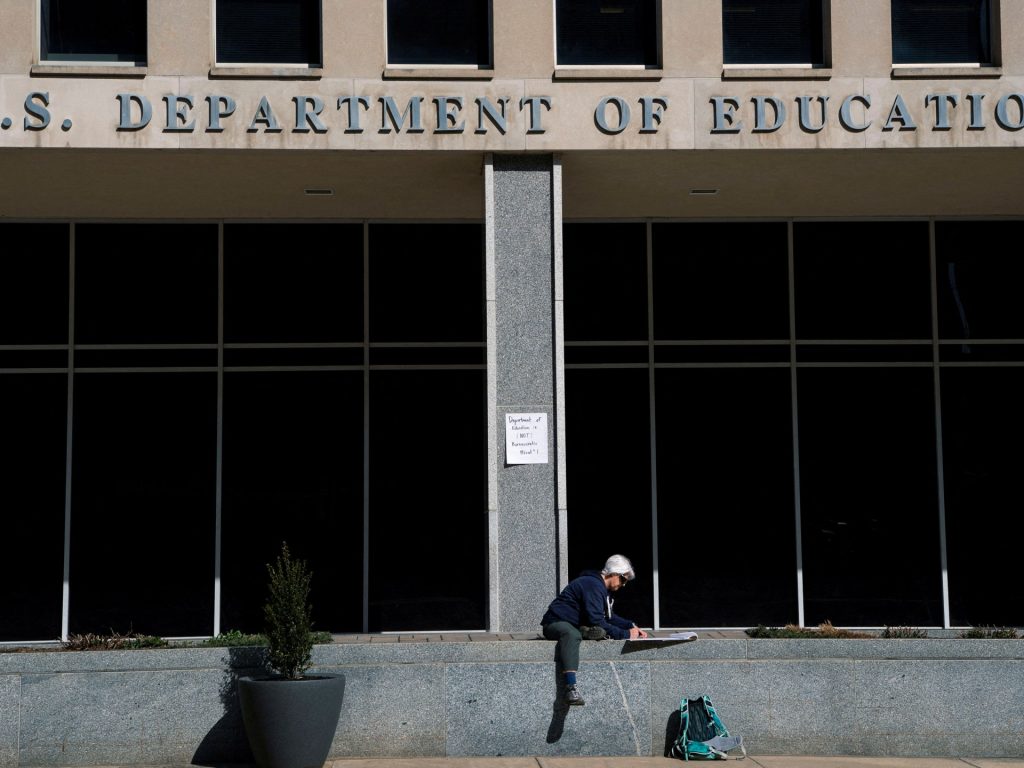
Advocates say new rules let Education Department to politically punish groups working on immigration, transgender care. The United States Department of Education has finalised new rules that could bar nonprofits deemed to have undertaken work with a “substantial illegal purpose” from a special student loan forgiveness programme. Those rules, finalised on Thursday, appear to single out certain organisations that do work in areas that President Donald Trump politically opposes, including immigration advocacy and transgender rights. Recommended Stories list of 3 itemsend of list Under the new rules, set to take effect in July 2026, the education secretary has the power to exclude groups if they engage in activities like the “chemical castration” of children, using a politically charged term for gender-affirming healthcare, including puberty-delaying medication. It also allows the education secretary to bar groups accused of supporting undocumented immigration or “terrorist” organisations. The Trump administration has said its decisions “will not be made based on the political views or policy preferences of the organization”. But advocates fear the move is the administration’s latest effort to target left-leaning and liberal organisations. Trump has already threatened to crack down on several liberal nonprofits, which the White House has broadly accused of being part of “domestic terror networks”. Thursday’s rules concern the Public Service Loan Forgiveness programme, created by an act of Congress in 2007. In an effort to direct more graduates into public service jobs, the programme promises to cancel federal student loans for government employees and many nonprofit workers after they have made 10 years of payments. Advertisement Workers in the public sector, including teachers, medical professionals, firefighters, social service professionals and lawyers, are among those who can benefit. In a statement, the Trump administration defended the updated rules, calling them a necessary bulwark to protect taxpayer funds. The programme “was meant to support Americans who dedicate their careers to public service – not to subsidize organizations that violate the law, whether by harboring illegal immigrants or performing prohibited medical procedures that attempt to transition children away from their biological sex”, said Education Undersecretary Nicholas Kent. Critics, however, have denounced the administration for using false claims of “terrorism” or criminal behaviour to silence opposing views and restrict civil liberties. Michael Lukens, executive director of the Amica Center for Immigrant Rights, said the new rules weaponised loan forgiveness. Lukens explained that many of the lawyers, social workers and paralegals who work at his organisation handle cases to stop deportations and other immigration litigation. They count on public service loan forgiveness to take jobs that pay significantly less than the private sector, he said. “All of a sudden, that’s going away,” Lukens told The Associated Press news agency. “The younger generation, I hope, will be able to wait this out for the next couple of years to see if it gets better, but if it doesn’t, we’re going to see a lot of people leave the field to go and work in a for-profit space.” Organisations have raised concerns over the education secretary’s broad power to determine if a group should be barred. Short of a legal finding, the secretary can decide based on a “preponderance of the evidence” whether an employer is in violation. The National Council of Nonprofits was among the associations criticising the change. It said the rules would allow future administrations from any political party to change eligibility rules “based on their own priorities or ideology”. Adblock test (Why?)
Radio Free Asia says halting news operations due to Trump admin cuts
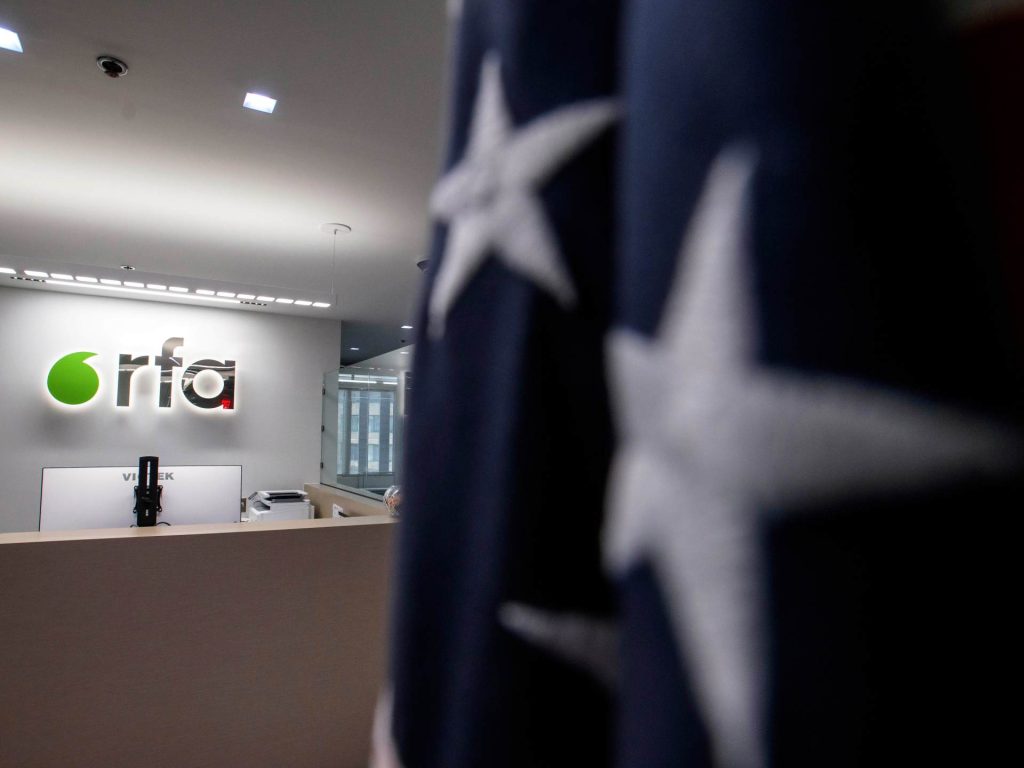
Announcing the move, staff at the outlet said ‘authoritarian regimes are already celebrating’ its potential demise. Radio Free Asia (RFA) will shut down its news operations on Friday, citing the government-funded news outlet’s dire financial situation caused by funding cuts under President Donald Trump’s administration and the ongoing US government shutdown. Bay Fang, RFA’s president and CEO, said in a statement that “uncertainty about our budgetary future” means that the outlet has been “forced to suspend all remaining news content production”. Recommended Stories list of 3 itemsend of list “In an effort to conserve limited resources on hand and preserve the possibility of restarting operations should consistent funding become available, RFA is taking further steps to responsibly shrink its already reduced footprint,” she said on Wednesday. Fang added that RFA would begin closing its overseas bureaus and would formally lay off and pay severance to furloughed staff. She said many staff members have been on unpaid leave since March, “when the US Agency for Global Media [USAGM] unlawfully terminated RFA’s Congressionally appropriated grant”. On March 14, Trump signed an executive order effectively eliminating USAGM, an independent US government agency created in the mid-1990s to broadcast news and information to regions with poor press freedom records. Alongside RFA, USAGM also hosts sister publications Radio Free Europe/Radio Liberty (RFE) and Voice of America (VOA). Following March’s executive order, RFA was forced to put three-quarters of its US-based employees on unpaid leave and terminate most of its overseas contractors. Another round of mass layoffs followed in May, along with the termination of several RFA language services, including Tibetan, Burmese and Uighur. Advertisement Mass layoffs also took place at VOA in March when Trump signed another executive order placing nearly all 1,400 staff at the outlet – which he described as a “total left-wing disaster” – on paid leave. It has operated on a limited basis since then. Trump has said operations like RFA, RFE/Radio Liberty and VOA are a waste of government resources and accused them of being biased against his administration. Since its founding in 1996, RFA has reported on Asia’s most repressive regimes, providing English- and local-language online and broadcast services to citizens of authoritarian governments across the region. Its flagship projects include its Uighur service – the world’s only independent Uyghur-language outlet, covering the repressed ethnic group in western China – as well as its North Korea service, which reports on events inside the hermit state. An announcement penned by RFA executive editor Rosa Hwang, published on the outlet’s website on Wednesday, said, “Make no mistake, authoritarian regimes are already celebrating RFA’s potential demise.” “Independent journalism is at the core of RFA. For the first time since RFA’s inception almost 30 years ago, that voice is at risk,” Hwang said. “We still believe in the urgency of that mission – and in the resilience of our extraordinary journalists. Once our funding returns, so will we,” she added. RFE/Radio Liberty, which went through its own round of furloughs earlier this year, said this week that it received its last round of federal funding in September and its news services are continuing for now. “We plan to continue reaching our audiences for the foreseeable future,” it said. It’s not immediately clear why RFA and RFE/Radio Liberty – which share the same governing and funding structure, but are based in the US and Europe, respectively – are taking different approaches. Adblock test (Why?)
As battle for Ukraine’s Pokrovsk heats up, Putin touts nuclear-powered arms
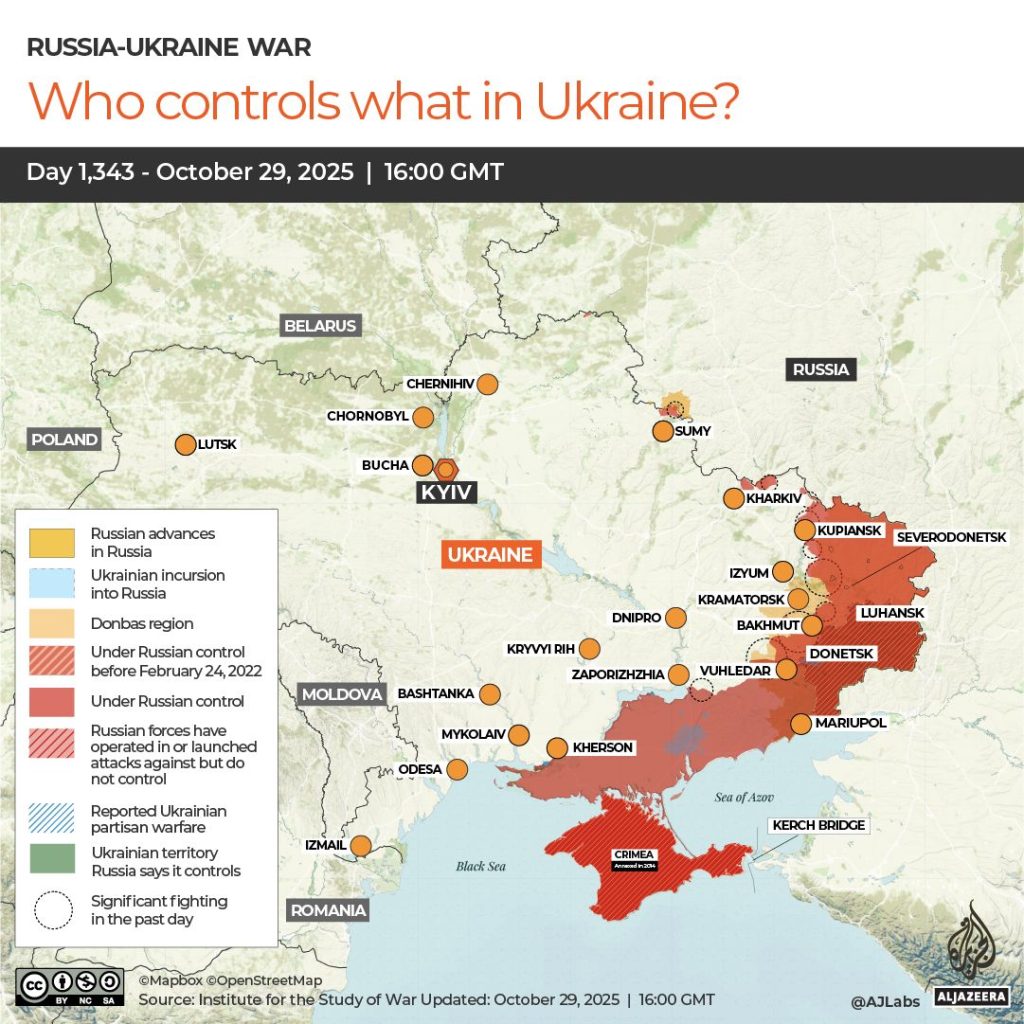
Russian and Ukrainian forces are interlocked in desperate battles for control of Ukraine’s eastern towns of Pokrovsk and Myrnohrad, which Moscow considers a gateway to the remaining unoccupied areas of the Donetsk region. On Sunday, Valery Gerasimov, Russian chief of staff, told President Vladimir Putin his 2nd and 51st Combined Arms Armies were “advancing along converging axes” and “have completed the encirclement of the enemy” in Pokrovsk and Myrnohrad. Recommended Stories list of 4 itemsend of list He claimed some 5,500 Ukrainian troops were surrounded, including elite airborne and marine units. Russian military reporters contradicted these claims, with one named “Military Informant” telling 621,000 Telegram subscribers, “There is simply no encirclement” as the two claws of Gerasimov’s attempted pincer movement were still “several kilometres” apart. On Thursday, Oleksandr Syrskii, the Ukrainian commander-in-chief, also denied Gerasimov’s claim. “The statements of Russian propaganda about the alleged ‘blocking’ of the defence forces of Ukraine in Pokrovsk, as well as in Kupiansk, do not correspond to reality,” Syrskii said. The Russian reporter also thought it “extremely unlikely” that thousands of Ukrainian troops were trapped. “If earlier urban battles were a classic meat grinder ‘head-to-head’ with battles for each house,” he said, now they are “conducted by small groups of infantry with the support of many drones”. Geolocated footage showed that isolated Russian groups had entered western and central Pokrovsk on October 23, but they did not appear to control areas within the city, rather to stake out positions and await reinforcements. Advertisement Ukraine’s General Staff said the situation around Pokrovsk “remains difficult”, and estimated that some 200 Russian troops had infiltrated the town, but said defending units were conducting sabotage operations that prevented Russian units from gaining a permanent foothold. The front around Pokrovsk also remained dynamic. Ukrainian military observer Konstantyn Mashovets reported that Kyiv’s troops were able to ambush Russian rear positions in the village of Sukhetsky, northeast of Pokrovsk, demonstrating the porousness of the front line. “[Russian] small infantry groups in some places began to collide with Ukrainian corresponding groups quite often and suddenly, even before their deployment or when moving to strengthen and replenish their assault groups directly,” said Mashovets. “Due to the abundance of drones in the air, which make the movement of any large concentrations of infantry extremely dangerous, the positions of both sides remain mixed,” said Kremlin-aligned Russian military news outlet Rybar. “This leads to the absence of a single front line and prevents the determination of the exact boundaries of the control zones.” Mashovets estimated that the Russian 2nd Combined Arms Army, which he described as the “main impact force”, had received reinforcements of between 6,000 and 10,500 troops from other areas of the front ahead of the latest assault, which began in mid-October. “Special attention is focused on Pokrovsk and the neighbouring areas. That is where the occupier has concentrated its largest assault forces,” said Ukrainian President Volodymyr Zelenskyy in a Monday evening address. “It is Pokrovsk that is their main objective.” Ukraine strikes Russian energy hubs Zelenskyy has often said his objective is to return the war to Russian soil. Ukraine’s long-range drones and cruise missiles were performing that task during the past week. Ukraine struck the Ryazan oil refinery for the fifth time this year on October 23, setting ablaze a crude oil distillation unit. Russia’s Defence Ministry said 139 Ukrainian drones had been shot down overnight. Leningrad’s regional governor said “several” Ukrainian drones had been shot down without causing damage or casualties on Saturday. Ukraine struck a fuel and lubricants container in Simferopol on Wednesday, Crimean occupation Governor Sergey Aksyonov said. Putin boasts of weapons ‘nobody else in the world has’ Russian officials who have been supportive of US President Donald Trump’s efforts to negotiate a peace directly with Putin changed their tone after Trump cancelled a summit with Putin and imposed sanctions on Russian oil majors Lukoil and Rosneft last week. Advertisement “The US is our adversary, and its verbose ‘peacemaker’ is now firmly on the warpath against Russia,” said Dmitry Medvedev, deputy chair of Russia’s National Security Council, saying Trump was now “completely aligned with mad Europe”. Over cakes and tea with Russian war veterans on Monday, Putin announced the successful test launch of a new nuclear-powered torpedo with the ability to create radioactive tidal waves targeting coastal regions. The Poseidon reportedly has a range of 10,000km (6,200 miles) and travels at 185km/h (115mph). As with previous unveilings of Russian weapons, Putin said, “There’s nothing like it in the world, its rivals are unlikely to appear anytime soon, and there are no existing interception methods”. Duma Defence Committee Chairman Andrey Kartapolov said the Poseidon was“capable of disabling entire states”. Three days earlier, Putin had announced the successful test of a new nuclear-capable cruise missile, the Burevestnik, which is also nuclear-powered. “It is a unique ware which nobody else in the world has,” Putin said. Russia followed a similar political intimidation tactic in November 2024, when it launched the Oreshnik, a hypersonic, intermediate-range ballistic, nuclear-capable missile, to hit a Ukrainian factory in Dnipro. On Tuesday, Putin said he would deploy the Oreshnik in Belarus by December. Russia also tested the Sarmat, a new intercontinental ballistic missile that Putin said is not yet operational, in the Sea of Japan. None of the tests were independently verified, and it was unclear whether any of the new weapons were battle-ready or whether they could be produced at scale. On October 22, Moscow conducted a routine strategic forces exercise, sending Tupolev-22M3 long-range bombers over the Baltic Sea, framing it as a reaction to Western aggression. Trump said on Monday that Putin should instead focus on ending the war. “I don’t think it’s an appropriate thing for Putin to be saying,” said the US president. “You ought to get the war ended; the war that should have taken one week is now in … its fourth year, that’s what you ought to do instead of testing missiles.” Adblock test (Why?)
Can Southeast Asia turn its economic weight into real power?
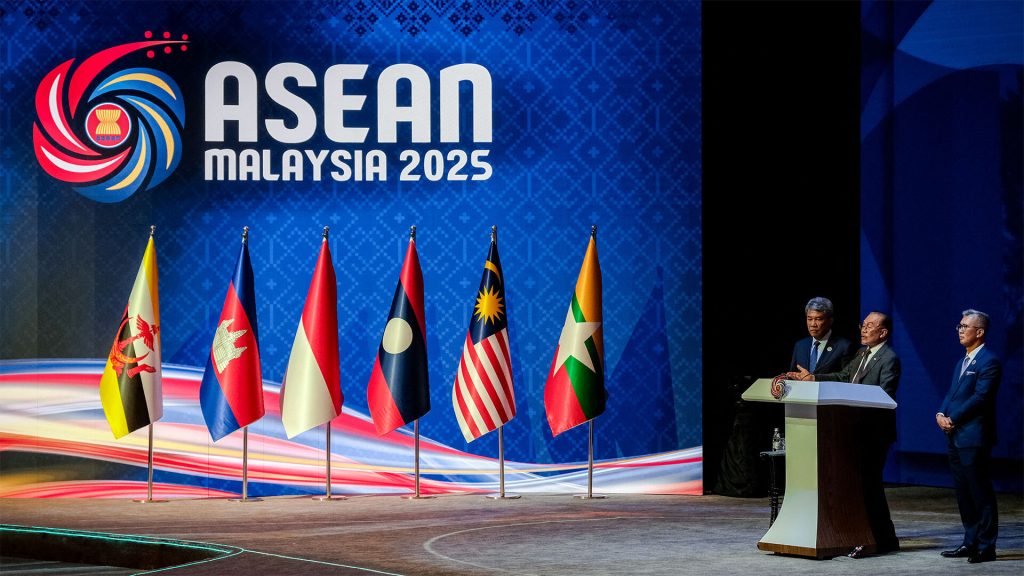
As global trade tensions rise, ASEAN faces a challenge: how to benefit from the US and China without picking sides. It is the world’s fifth-largest economy, with a combined gross domestic product of more than $3.6 trillion dollars. The Association of Southeast Asian Nations (ASEAN) brings together 11 states, representing nearly 700 million people. As a fast-growing hub for trade, manufacturing and supply chains, ASEAN is a vital partner for both China and the United States. However, Donald Trump’s tariffs on some of its members have raised concerns about whether Washington has turned its back on the region. These come as Beijing has doubled down on its efforts to expand its influence. Meanwhile, Trump has sanctioned Russia’s oil companies. Plus, Africa’s anti-money laundering efforts. Published On 30 Oct 202530 Oct 2025 Click here to share on social media share2 Share Adblock test (Why?)
Turkiye’s Erdogan urges Germany to help end Israel’s ‘genocide’ in Gaza
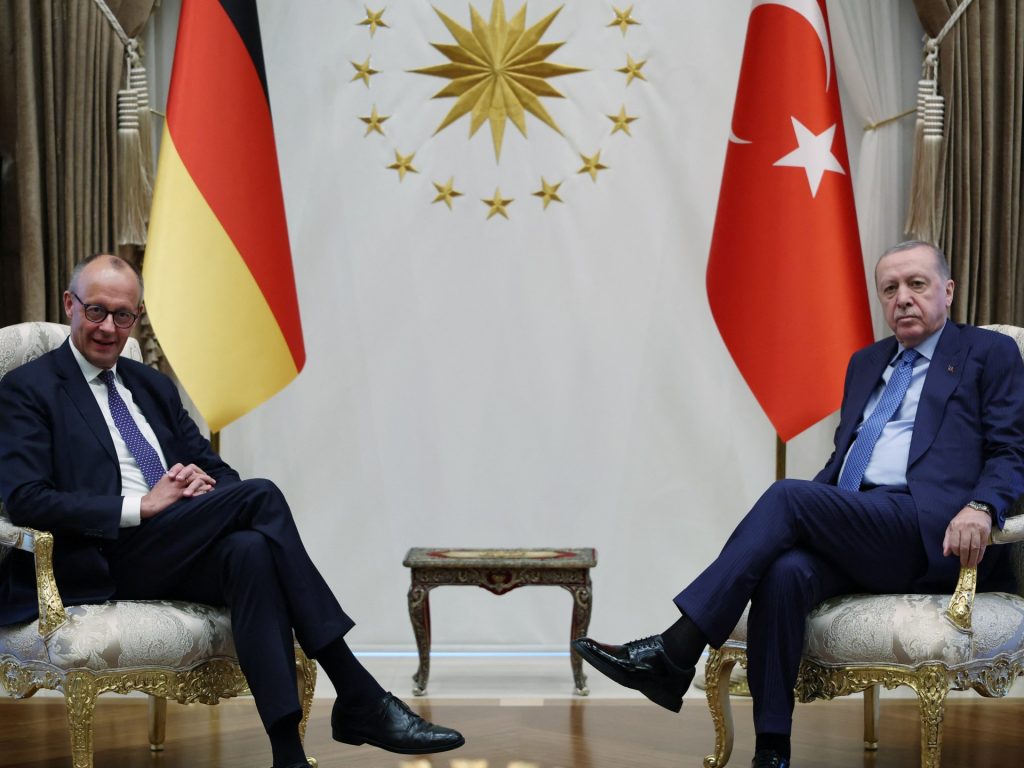
Despite a fragile US-brokered ceasefire, Israel has unleashed a series of bombardments on Gaza this week. Published On 30 Oct 202530 Oct 2025 Click here to share on social media share2 Share Turkiye’s President Recep Tayyip Erdogan has criticised Germany over what he called its ignorance of Israel’s “genocide” and attacks on Gaza. At a joint news conference with German Chancellor Friedrich Merz in Ankara on Thursday, Erdogan noted Israel’s access to nuclear and other weapons, saying it was using them to threaten Gaza, and adding that Hamas was not as well equipped. He said Israel had once again attacked Gaza in recent days despite a ceasefire in the enclave. “We need to end the genocide and the deliberate starvation by involving Germany’s Red Cross and our own Turkish Red Crescent,” Erdogan said. “Does Germany not see these?” he said, adding it was Turkiye, Germany and other countries’ humanitarian duty to end the famine and massacres in Gaza. “Just as we want the Russia-Ukraine war to end, we also support an end to Israel’s war on Gaza,” Erdogan said. “Turkiye and Germany are two key countries that can join hands to achieve this.” Despite a fragile US-brokered ceasefire that took effect on October 10, Israel launched a series of bombardments on Gaza following the killing of an Israeli soldier in southern Gaza’s Rafah on Tuesday. Israel’s retaliatory attacks killed 104 people, mostly women and children, said Gaza’s Health Ministry. Reporting from Gaza City on Wednesday, Al Jazeera’s Hani Mahmoud said the Israeli attacks this week were similar to previous rounds of bombardments. “A brief hope for calm turned into despair,” said Mahmoud. “For a lot of people, it’s a stark reminder of the opening weeks of the genocide in terms of the intensity and the scale of destruction that was caused by the massive bombs on Gaza City.” Advertisement Israel said on Wednesday that it had begun “renewed enforcement of the ceasefire”. United States President Donald Trump insisted the ceasefire “is not in jeopardy” despite the latest attacks, while mediator Qatar called Israel’s violations “disappointing and frustrating“. “The deal was set up to fail, right?” Former UNRWA spokesperson Chris Gunness spoke to @Dena about how the conditions of the ceasefire in Gaza don’t guarantee the access to aid that Palestinians need. pic.twitter.com/Clzjmzq2tk — AJ+ (@ajplus) October 30, 2025 As part of Trump’s 20-point plan to end Israel’s war on Gaza, an international force is meant to form to monitor the agreement, but the accord does not specify which countries would provide the troops. Israeli Foreign Minister Gideon Saar told reporters on Monday that Israel opposes any troops from Turkiye joining that force because of Erdogan’s past comments on Israel. “Countries that want or are ready to send armed forces should be at least fair to Israel,” Saar said. He did not elaborate. Israel’s war on Gaza has killed at least 68,527 people and wounded 170,395 since it began in October 2023. A total of 1,139 people were killed in Israel during the October 7, 2023, Hamas-led attacks, and about 200 were taken captive. Adblock test (Why?)
Why is Donald Trump so interested in rare earth minerals?
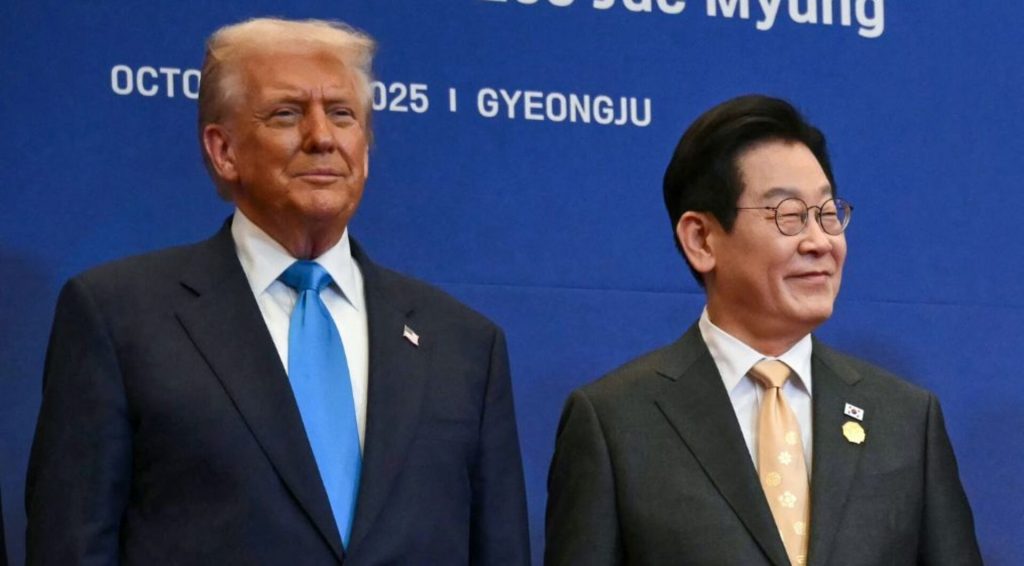
The US president has struck a number of deals in his tour of Asia this week. Since coming back to the White House earlier this year, President Donald Trump has made rare earth minerals one of his top priorities. He’s focused on securing enough supply for the United States economy. In March, Trump went as far as signing an executive order, where he invoked wartime powers to increase the production of rare earths. And this week, he signed several agreements with a number of Asian countries, in the hopes of gaining access to the minerals. This is all to counter China’s global dominance in this sector and Beijing’s recent restrictions on rare earth exports. So, why are these minerals so crucial for the US economy? And can Trump break China’s monopoly? Presenter: Bernard Smith Guests: Brian Wong – Assistant Professor in Philosophy at the University of Hong Kong. Gracelin Baskaran – Mining Economist and Director of the Critical Minerals Security program at Center for Strategic and International Studies. Huiyao Wang – President and Founder of Center for China and Globalization. Published On 29 Oct 202529 Oct 2025 Click here to share on social media share2 Share Adblock test (Why?)

